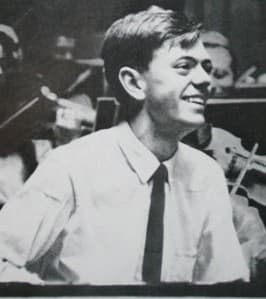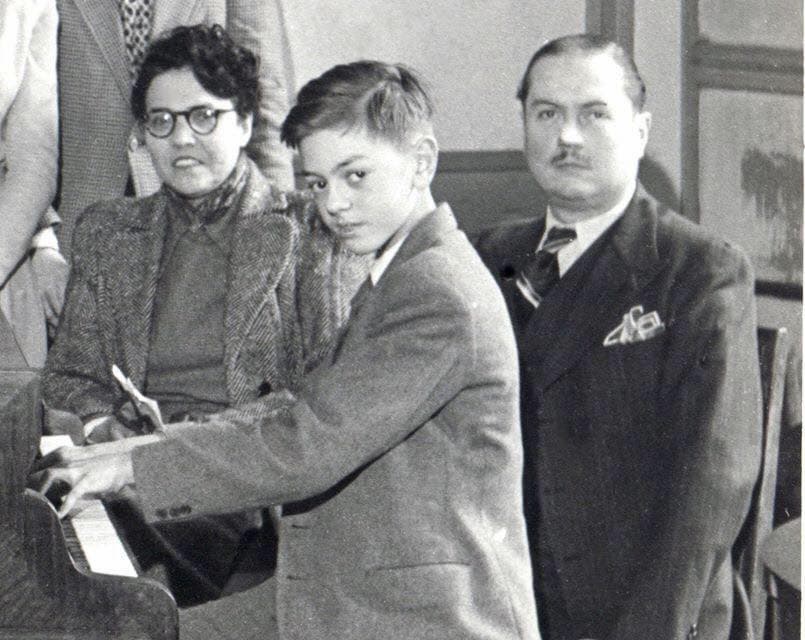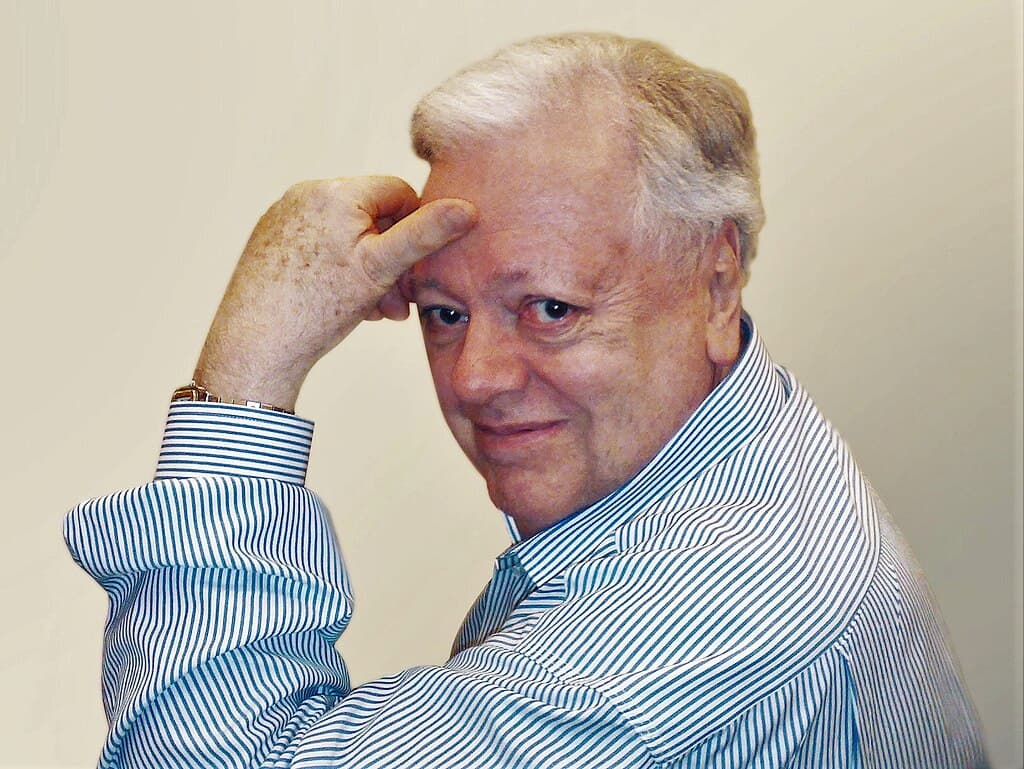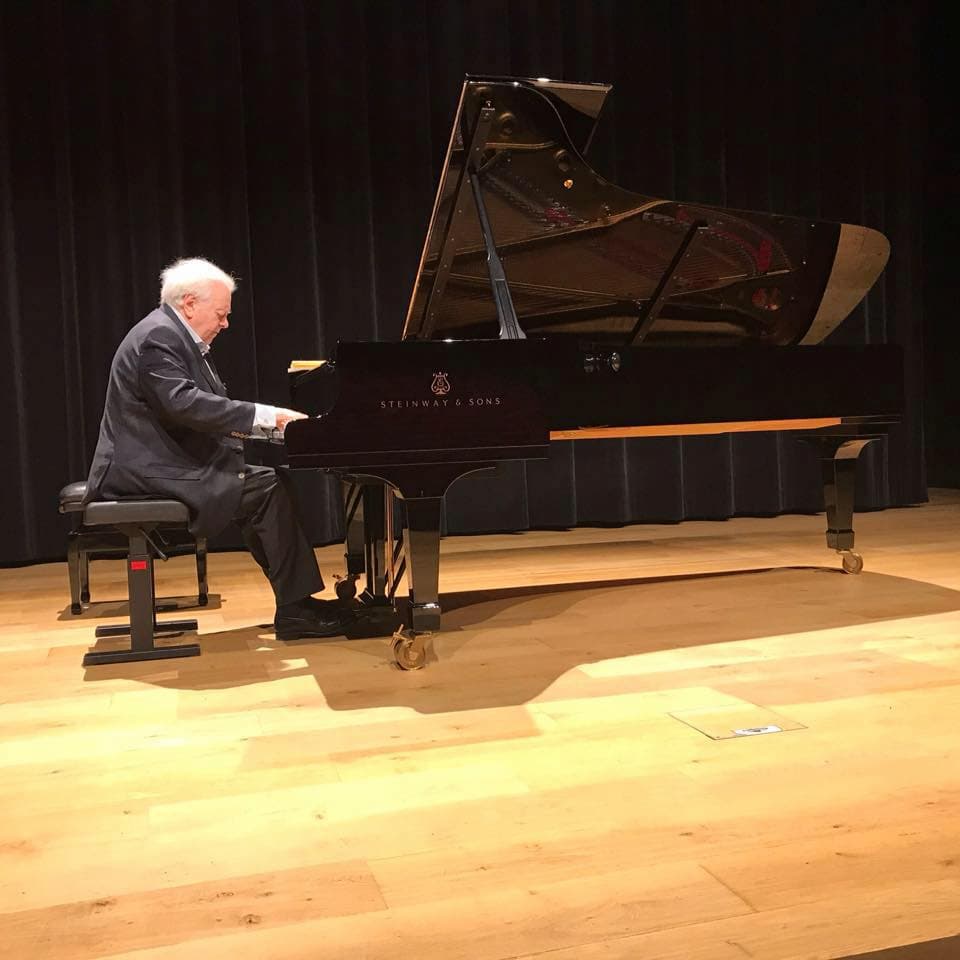Born on 7 June 1934 in Reims, the French pianist and conductor Philippe Entremont came from a musical family. His father was a violinist and conductor, and his mother a “Grand Prix” pianist and piano teacher. However, Entremont’s first instrument was the violin.

Philippe Entremont
As he remembered in an interview with Esther Basha, “I wasn’t really in love with the sound I produced on the violin in the beginning. At home, the piano was in the room where I studied the violin. To me, it was a nice instrument, a beautiful piano, and I really didn’t understand why I should be standing instead of being comfortably seated at the piano. I was extremely lazy as a kid. So I said, I think I better play the piano because at least I can sit down.” And once he sat down at the piano, his violin career came to a quick conclusion. Entremont’s piano studies advanced rapidly, and at the age of ten, he gave his first public performance, playing the piano part in Mozart’s first piano quartet in his father’s ensemble.
Philippe Entremont Performs Saint-Saëns’ Piano Concerto in C minor, No.4 “Allegro vivace”
It was quickly evident that Entremont had a special talent that needed professional encouragement. He entered the Paris Conservatoire at the age of 12 and immediately won prizes in sight-reading. His piano studies were entrusted to Rose Aye-Lejour, the main assistant of Jean Doyen. Entremont considered her “a fabulous teacher,” and he also took lessons with the fabled Marguerite Long.

Young Philippe Entremont
He received prizes in chamber music at 14, and piano at 15. And at the ripe old age of 16, Entremont won the International Long-Thibaud Competition. And while it propelled him to international recognition, he simply hates them. “Unfortunately,” as he explained, “this is the only way today for a young artist to have the chance to be heard by the critics, or some conductors, or to have their name in the newspaper. This is the only way you can be known today, and it’s not always the first prize-winner that is going to be the star of tomorrow. But the competitions, for me, are absolutely the pits.”
Maurice Ravel: Piano Concerto in G Major (Philippe Entremont, piano; Philadelphia Orchestra; Eugene Ormandy, cond.)

Entremont has sat on competition juries only four times in his life. And as he frequently explained, “the entire concept doesn’t please me; not only the competitors, but also the jury. There is a sort of professional jury that always chooses the same people and also finds the competitors, too. It’s like a golf circuit.” For Entremont, “the way juries decide on the winner is rather distressing. They are looking for the pianist who plays well, the one who plays the fewest wrong notes, and that is very disturbing.” Always an advocate of young talent, Entremont is looking for pianists with something to say. “They always play the same three or four pieces, and they play them to death. Everybody plays well, but I am looking for somebody who has something extra to say.” After he won the Long-Thibaud International Competition in 1951, Entremont toured Europe for two years and made his US debut on 5 January 1953. In due course, he made some celebrated recordings, including the Ravel G major and the Gershwin Piano Concerto with the Philadelphia Orchestra under Ormandy.
George Gershwin: Piano Concerto in F Major (Philippe Entremont, piano; Philadelphia Orchestra; Eugene Ormandy, cond.)

Entremont has been described as “a fluent, well-schooled pianist, of bright, inquiring nature and catholic taste, who plays a wide repertory.” He has played over 7,000 concerts during his career, but “never encountered any special fatigue. I still feel the same way even now at my age. I know how to breathe with music, and I never go too far with effort. And on stage, I really feel at home.” For a pianist and conductor who has stood in front of an audience thousands of times, stage fright is still an essential part of his performances. As he explained in an interview, “Before a concert, I am a wreck. And I have decided a long time ago that stage fright is my friend. If I don’t feel that, I know that something is wrong. I need it, I need to be totally distraught before I am on stage, and as soon as it starts, it clears up; just like a cold.” For Entremont, music is a fabulous language without barriers that can be enjoyed by everybody in the world. “Like anybody, I have headaches, and I am in a bad mood sometimes. Or I might have a dull day or a bad trip, because our life is not easy.” And he firmly believes that “without music, life would be impossible.”
For more of the best in classical music, sign up for our E-Newsletter
